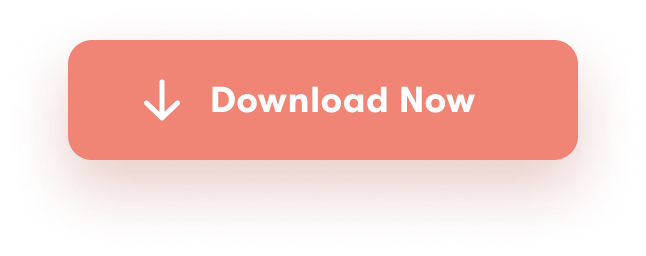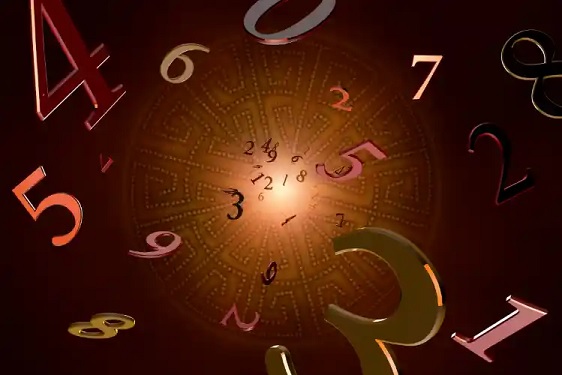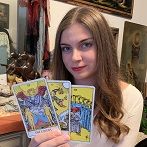 “Forgiveness is not always easy. At times, it feels more painful than the wound we suffered, to forgive the one that inflicted it. And yet, there is no peace without forgiveness.” ~Marianne Williamson Twenty-seven years ago I made a terrible mistake that led to losing the friendship of someone important to me. I was twelve and I very vividly remember that I was at her front door, asking for her forgiveness and she was telling me she couldn’t do this.
“Forgiveness is not always easy. At times, it feels more painful than the wound we suffered, to forgive the one that inflicted it. And yet, there is no peace without forgiveness.” ~Marianne Williamson Twenty-seven years ago I made a terrible mistake that led to losing the friendship of someone important to me. I was twelve and I very vividly remember that I was at her front door, asking for her forgiveness and she was telling me she couldn’t do this.
Friendship is one of those areas of my life that I have always felt I need to work on. I used to believe I had to do work in this area because I was uprooted every six months to three years in my childhood. I believed that my trust in friendships was shaky because my history suggested to me that eventually one of us would leave.
And then the unimaginable happened.
I was faced with the truth, my unforgivable moment. The girl, who is now a woman, showed up at an impromptu reunion and I sat across from the mistake I had made twenty-seven years ago.
She and I were best friends. We spent the night at each other’s houses and shaved our legs for the first time together. She taught me all the big vocabulary words, I taught her all the swear words. We were inseparable.
And then her mom got sick. Shortly thereafter, she died.
I grew up in an unconventional family where my parents were married at nineteen and had kids by twenty-one. They were boundless young adults with children and stalwart opinions, lacking in education. My dad’s dad had also died when he was young, and instead of creating empathy and compassion in him, my dad was left with the notion that when you die, you’re just dead—get over it.
My friend’s mom was the first person most of us kids actually knew to have died. I felt the tears and remember the sadness, but like any twelve-year-old, I was ready for our friendship to resume as normal seconds after her mom passed away. Naturally, that was not the case. Thus occurred the twelve-year-old “fight” over the conditions of our friendship.
My parents told me she was just using her mom’s death as a reason to be difficult and that she just needed to get over it. I remember my mom hissing those heartless words at my best friend. And I remember echoing a similar sentiment myself, without conviction or the wisdom of experience, thus destroying our friendship forever.
Over the years after that, I would try to regain access to her, to our friendship, with apologies and attempts at conversation. All efforts were met with a firm “No,” or “I’m not ready.” The words not only marred and destroyed our friendship but rippled through all of our mutual friends, ending many other friendships for me. I was devastated, alone, and unforgiven. I was twelve.
Now imagine you are forgiven twenty-seven years later.
As I was meditating this morning, I was brought to tears thinking of my daughter and how careful I have been to express and teach empathy to her, how I have given her the pieces that I was lacking.
And as I meditated, I realized this is where my fear in friendship lives. This is where it all stemmed from. The moving and uprooting didn’t help my trust levels. But imagine you were never forgiven for a mistake you didn’t understand, for words that weren’t yours, in a time of grief you didn’t understand. Imagine you were left behind by all you had loved and trusted because you regurgitated your parents’ problematic view of grief and death to your friend.
Never in a million years would I ever do anything to intentionally hurt anyone, let alone my best friend. And knowing what I know today, I cannot even fathom how badly she hurt from the loss of her mother. Her mom! The one person who is meant to care for us and help us with our periods, talk to us about dating, and hold us when we cry. Her mom died. And I said the unthinkable. The unforgivable.
Last week I woke up thinking, “What if the unforgivable thing that has played a role in all of my relationships was forgiven? What if I was forgiven? How does that fit in? How does it transform itself in my life, in my body?”
We all have an un-forgiveness story buried deep inside. We don’t have to wait years for the relief of receiving someone else’s forgiveness, if it ever comes at all. We can choose to forgive ourselves now, whether they do or not, and free ourselves from the weight of our shame and self-judgment. Take these three steps to do just that:
1. Think about the day your un-forgiveness was born. Relax and allow yourself to repeat it one last time.
Close and eyes and remember: What was the context in which the story happened? Who was with you? What have you done? What happened after that?
2. Now imagine if you forgave yourself, and if there is another person(s) in the party, feel their forgiveness as well.
How would that feel in your body? How would that transform the beliefs you formed about friendships, partnerships, business, and life? What would you do differently if you knew you were forgiven and released the shame of your experience?
3. Give yourself and the others involved forgiveness, as we all do our best with the information and understanding we have based on our upbringing and out time in the world.
Note: We have the opportunity to always get wiser. Forgiveness is compassion and wisdom.
Forgiveness in ourselves and others is one of life’s great lessons. We are often held hostage by our inability to forgive and therefore so is our potential to achieve our life’s purpose.
A big powerful thank you to my friend who forgave me after twenty-seven years. I am honored and working to spread the love you showed me.
 Willow Bradne
Willow Bradne
This post was republished with permission from tinybuddha.com. You can find the original post here.





